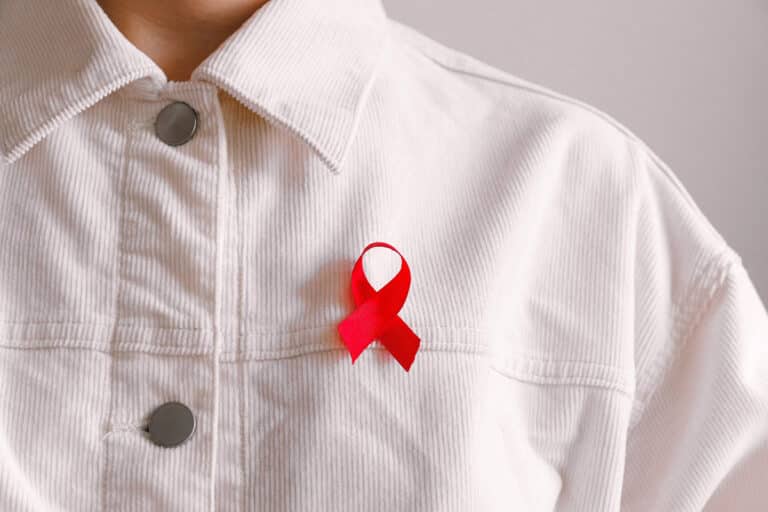Moderna to begin trials for HIV vaccine based on COVID-19 research
Moderna, the biotech company that developed one of the first COVID-19 vaccines last year, is aiming to tackle another pandemic that’s been around for forty years already: HIV/AIDS. Two of its mRNA-based HIV vaccines could start human trials this week, according to a posting shared in the National Institutes of Health’s (NIH) clinical trial registry last week.
Moderna is seeking 56 individuals, aged 18 to 50 and who are HIV-negative, for the trial, which is estimated to begin on 19 August and conclude in spring 2023. The biotech company is also reportedly developing an influenza vaccine based on the same technology.
The ‘Phase I study’ would test the vaccines’ safety, as well as collect basic data on whether they’re inducing any kind of immunity, but would still need to go through ‘Phases II’ and ‘III’ in order to see how effective they might be.
So far, Moderna’s vaccines passed Phase I testing earlier this year, with 97 per cent of participants developing some kind of immune response (though not the full response that would be required to fend off HIV infection). Phase II tests for a vaccine’s overall effectiveness, and with the move into Phase III, Moderna will be looking at its efficacy versus other prevention treatments currently on the market, such as pre-exposure prophylaxis, also known as PreP.
These shots would be based on the same technology as Moderna’s COVID-19 vaccine: mRNA strands in the vaccine enter human cells, providing them with the code to make little bits of the same proteins that sit on the virus’ exterior. “Those proteins then act like test dummies for our immune systems to recognise, so immune cells in the future can identify and neutralise the actual virus. The process works incredibly well against SARS-CoV-2, and there’s hope that it may work with HIV as well,” reports Popular Science.
Until now, the history of HIV vaccine development has been marked by numerous setbacks and disappointments, with each apparent ‘breakthrough’ presenting even more challenges and hurdles to overcome. This is due, in part, because the virus integrates itself into the human genome rapidly—within 72 hours of transmission—thus producing an irreversible infection.
Since the late 1700s, researchers have developed several different types of vaccines, but most vaccines for other viruses have proven ineffective against HIV. “Also known as the human immunodeficiency virus, it attacks the immune system itself and breaks down the body’s ability to fight other diseases and infections,” adds them. when reporting on the same topic.
In that sense, mRNA vaccines could be the breakthrough we’ve been waiting for as, unlike inactive or live vaccines, they don’t contain parts of a virus—but create proteins that themselves trigger an immune response in the body. There are currently 16 known HIV mutations. Moderna’s vaccine could potentially allow a patient’s body to recognise new variants of the virus on top of being easier to mass-produce and distribute.
Sceptics might point out that mRNA vaccine technology has been around for decades—which is true—but the extensive approval time required by the Food and Drug Administration (FDA) has previously limited the number of mRNA vaccines that eventually make it to widespread use in the US. The COVID-19 pandemic changed that, however, as last year’s private-public partnership programme Operation Warp Speed (OWS) accelerated the timetable for clinical vaccine trials and FDA approval.
And Moderna scientists aren’t alone in their efforts: Phase I testing for a ‘mosaic vaccine’ began at Oxford University back in July 2021. Between the two, we may hopefully see the spread of one of the world’s most devastating viruses halted in the coming decade.
“The only real hope we have of ending the HIV/AIDS pandemic is through the deployment of an effective HIV vaccine, one that is achieved through the work of partners, advocates, and community members joining hands to do together what no one individual or group can do on its own,” wrote International AIDS Vaccine Initiative (IAVI) President, Doctor Mark Feinberg, in a June statement marking the 40th anniversary of the HIV epidemic.






